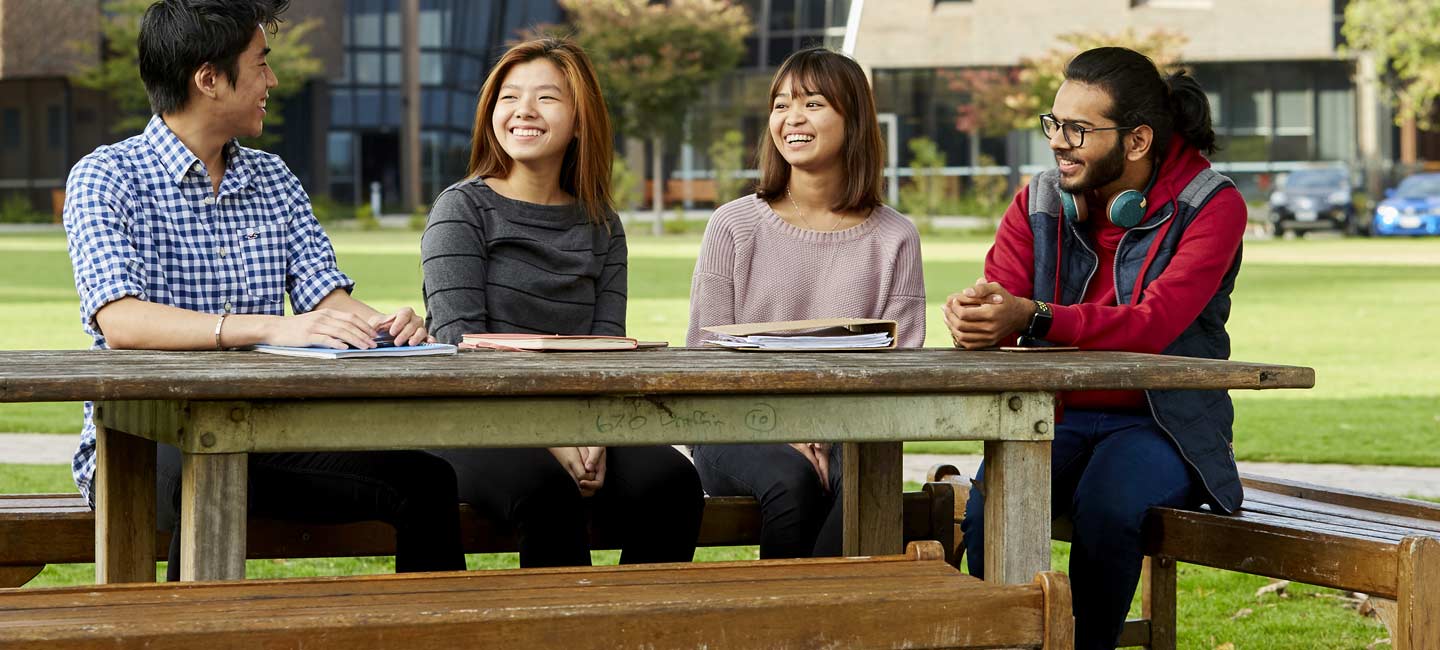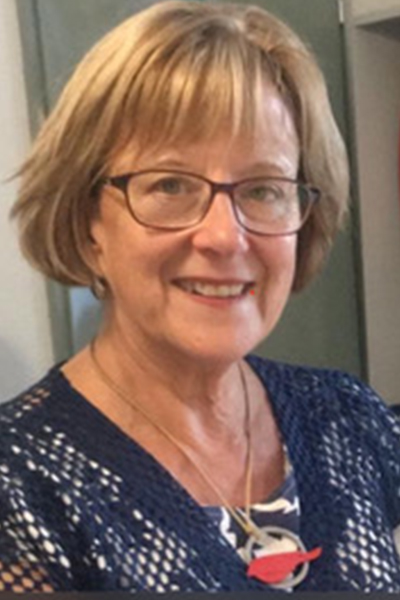

 Kim Cruickshank recalls the poignant moment she finished her four-year degree in theology at Trinity as a day student. ‘I remember standing on the Bul looking out, wondering if I’d ever be back. It was the late ‘80s and women weren’t yet allowed to be ordained.’
Kim Cruickshank recalls the poignant moment she finished her four-year degree in theology at Trinity as a day student. ‘I remember standing on the Bul looking out, wondering if I’d ever be back. It was the late ‘80s and women weren’t yet allowed to be ordained.’
Imagine if someone had whispered in Kim’s ear that not only would she become one of Australia’s first women to be ordained, but she’d return to Trinity in a newly created position as the first chaplain of Trinity’s Pathways School to pioneer a program to help international students assimilate in Australia.
Growing up in Footscray stimulated Kim’s passion for other cultures and multi-faiths. ‘My classrooms at school had people from many different countries. During lunchtimes the air was filled with the smell of unusual foods,’ she remembers. ‘Diversity is my normal.’
At Kim’s ordination ceremony in 1992, when the first group of 30 women priests were ordained (a historical moment for the Anglican Church of Australia), her invitees included Buddhists, Hindus and Muslims.
As a person drawn to helping others, Kim initially studied youth work, concentrating on refugees and kids in the prison system. During this time, she says it became apparent to her that the barrier to people belonging in faith communities wasn’t the young people.
‘It was older people who wanted 40-year-old apprentices. Everyone gave lip service to the idea that we need young people in the church, but they wanted them to sit and behave and not be young. Not be exuberant and giggly.’
This realisation led Kim to make a decision that in order to improve the place of young people in the church, she needed to broaden her horizons.
‘I thought if I’m fair dinkum about working with young people, I have to minister to all age groups.’
So in 2001, Trinity was the perfect place for a progressive thinker to use her skills in youth work and multi-faith dialogue to bring people together in the newly created role of chaplain for the Pathways School.
‘Initially I went to Trinity to have a look at what they were doing and to give them some ideas as to how they might advertise for someone to fill the new role.’
That ‘someone’ turned out to be Kim.
So the challenge began and the students were comfortable from the get go. ‘They were heartened they could include discussions of their faith practices as part of their studies in Melbourne,’ she says.
However, it took a while for the staff to understand Kim’s methodology.
‘I think some people’s idea of a chaplain wasn’t broad enough at first. They’d only seen chaplains who spent most of their time in the chapel or in a collar and only promoting Christianity.’
Kim’s philosophy is based on acceptance of diversity through a multi-faith approach.
‘I honour all people who cross my path. It’s important to welcome a stranger, learn from one another and walk together.’
It’s this premise that inspired her to develop the Chill Out program, an initiative she holds as a fond memory of her chaplaincy.
Designed to bring a range of cultures together, Chill Out extended way beyond the walls of the College. ‘I would send the students out into the suburbs to find Mee Goreng, Nasi Lemak, Biryani or whatever it was that was the food from their home country. They would bring the food back and we’d all taste each other’s food and talk about what memories it evoked and why it’s special.’ This helped each student connect with their comfort food.
‘When you’re away from your family and so many things that are familiar, if you have a smell, a sight, a taste that’s like home, it makes a huge difference.’
Kim also ran cooking clubs where students would go to her home and prepare three-course meals, learn about food and chat to each other in English as a way of improving their casual conversation. Other sessions focused on looking at things like family rituals, fashion, advertising, sport in their countries, discussing similarities and differences they’d noticed in Australia.
‘They got to know each other through talking about things that mattered to them, not just things that would help them pass the next test.’
With the program gaining momentum, Kim was given space in a building to further develop her multi-faith work. ‘It was deliberately called ‘the space’ because it could be used for anything,’ she says.
‘There was an area facing the direction for Mecca, room for kids to wash their feet and hands if they were Muslim and wanted to pray, a place where communion and Christian gatherings could take place, and private rooms where during Ramadan kids could go to get away from the food smells.’
Reflecting on her time at Trinity, Kim feels proud of the atmosphere she created, especially through the Chill Out program.
‘People could look at each other and say hello, safe in the knowledge there was mutual respect and interest.’
Kim’s legacy to the students during her time at the College is long lasting and far reaching.
‘After [the students] left, many came back to introduce me to their partners. I was a guest at lots of weddings and, in several cases, conducted the wedding ceremonies.’
Even today, students from Kenya, Malaysia, Singapore, Botswana and other countries still contact Kim to let her know when they have a baby or get a new job.
‘One gorgeous couple met through Chill Out – their names both started with J and they now have two children with names starting with J.’
Maybe one day the ‘J’ children will follow their parents’ footsteps to Trinity.
By Jocelyn Pride
